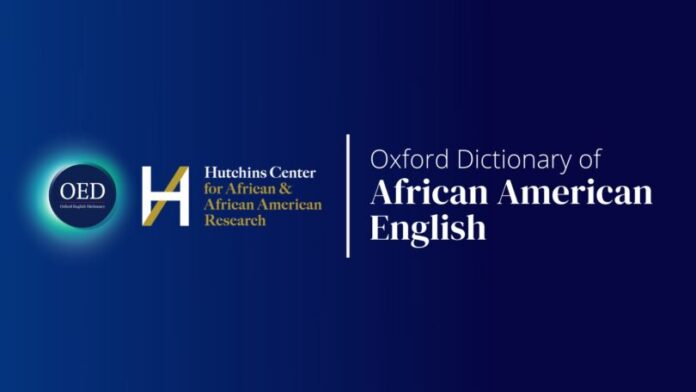
By Stacy M. Brown, NNPA Newswire Senior National Correspondent
In an exciting announcement, Oxford University Press revealed its forthcoming publication of the groundbreaking “Oxford Dictionary of African American English.”
During a recent online presentation, those involved in the project shared that they had already handpicked 100 words for the dictionary, with a target publication date set for March 2025.
Presented below are ten definitions and etymologies that eager readers can expect to find in this soon-to-be-released dictionary:
1. Bussin (adjective and participle): Primarily used to describe food, referring to something as tasty or delicious. It can also be used more broadly to describe something impressive or excellent. Additionally, it can describe a party, event, or gathering as busy, crowded, or lively. Variant forms include “bussing” and “bussin’.”
2. Grill (noun): A dental overlay, either removable or permanent, often made of silver, gold, or other metals and sometimes adorned with gemstones, worn as a form of jewelry.
3. Promised Land (noun): A place believed to offer refuge and freedom, historically associated with enslaved individuals and later with African Americans as a whole. This term draws inspiration from the biblical narrative of the Jewish people seeking liberation from Egyptian bondage.
4. Chitterlings (plural noun): A dish made from pig intestines, commonly prepared by boiling, frying, or stuffing them with other ingredients. It can also refer to the pig intestines themselves used as an ingredient. Variant forms include “chitlins,” “chittlins,” “chitlings,” and “chitterlins.”
5. Kitchen (noun): refers to the hair at the back of the neck, which is typically shorter, curlier, and considered more challenging to style.
6. Cakewalk (noun): In its first sense, it denotes a contest where Black individuals would perform a stylized walk in pairs, often judged by plantation owners, with the winner receiving a cake as a prize. In a broader context, it can signify something easily accomplished or achieved, as in the phrase, “This job is a cakewalk.”
7. Old school (adjective): Characteristic of early hip-hop or rap music originating from New York City between the late 1970s and mid-1980s. This style often incorporates couplets, funk and disco samples, and playful lyrics. It can also describe the music and artists associated with that era. A variant form is “old skool.”
8. Pat (verb): As a transitive verb, it refers to tapping the foot in rhythm with music, sometimes signifying participation in religious worship. As an intransitive verb, it describes the act of tapping the foot in rhythm with music, often to demonstrate engagement in religious worship.
9. Aunt Hagar’s children (noun): A collective term for Black people, possibly derived from the biblical figure of Hagar, who, along with her son Ishmael, was cast out by Sarah and Abraham. Within certain Black communities, Hagar symbolizes the mother figure for all Africans, African Americans, and Black womanhood.
10. Ring shout (noun): A spiritual ritual that involves a circular dance formation where participants shuffle their feet, clap their hands, and chant and sing together. The intensity of the dancing and chanting gradually escalates, often culminating in a state of spiritual ecstasy for the participants.
To ensure the inclusivity and representation of African American English, Henry Louis Gates Jr., a literary critic and African American history professor at Harvard University, serves as the editor of this significant project.
Researchers and editors from Oxford Languages and the Harvard University Hutchins Center for African and African American Research also contribute to the collaboration.
Gates emphasized the crucial need for self-expression, telling the New York Times, “Everybody has an urgent need for self-expression… You need to be able to communicate what you feel and what you think to other people in your speech community. That is why we refashioned the English language.”
Further, Gates revealed words included would also integrate into the prestigious Oxford English Dictionary.
He described this decision as the “best of both worlds,” highlighting the desire to demonstrate how Black English is an integral part of the global English language family.
With the release of the “Oxford Dictionary of African American English,” scheduled for 2025, officials said the public could contribute relevant words to enrich this comprehensive linguistic resource further.


